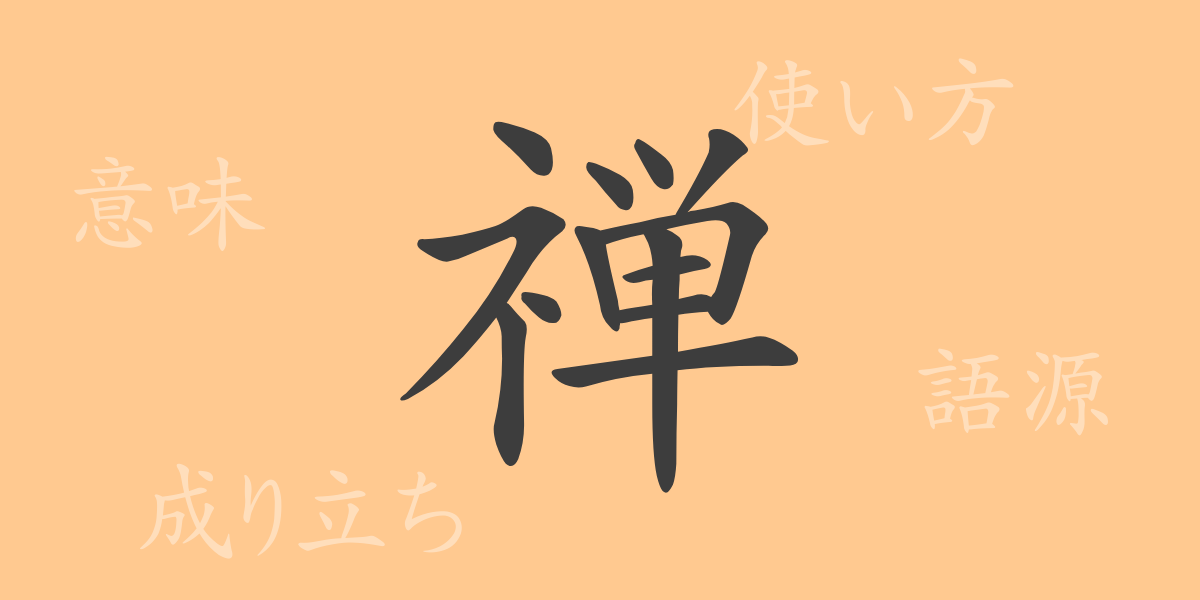The single character “禅” (ぜん) embodies profound significance, transcending mere text to deeply root itself in Japanese culture and philosophy. This article delves into the origins, contemporary usage, and the idiomatic and proverbial applications of “禅,” inviting you to explore the world of Zen.
Origins of 禅
“禅” traces its roots back to a sect of Buddhism from India, known as Zen, which passed through China before reaching Japan. Originating from the Sanskrit “Dhyāna,” which means “meditation,” it was referred to as “禅那” (ちゃんな) in China and later simplified to “禅.” Upon reaching Japan, it evolved uniquely, representing the practice of achieving enlightenment through quiet meditation.
Meaning and Usage of 禅
Originally a Buddhist term for meditation, “禅” has come to broadly mean “to calm the mind” or “to deeply contemplate” in modern contexts. It is also used in “禅問答” (ぜんもんどう), a form of dialogue that seeks enlightenment through seemingly nonsensical questions and answers. In everyday conversation, expressions like “禅の心” depict a serene approach to life’s challenges.
Readings, Stroke Count, and Radical of 禅
The character “禅” holds rich historical and linguistic significance.
- Readings: On’yomi “ゼン”; no specific kun’yomi.
- Stroke count: 13 strokes.
- Radical: 示 (しめすへん), meaning to show or indicate.
Phrases, Idioms, and Proverbs Using 禅
“禅” features in numerous phrases and idioms, reflecting its embeddedness in Japanese values and thoughts:
- 禅宗 (ぜんしゅう): A Buddhist sect centered on Zen meditation.
- 禅寺 (ぜんでら): Temples where Zen Buddhism is practiced.
- 禅僧 (ぜんそう): Monks belonging to the Zen sect.
- 禅問答 (ぜんもんどう): A dialogue aiming for enlightenment through intuitive understanding.
- 打禅 (だぜん): The act of sitting in Zen meditation.
Conclusion on 禅
“禅” extends beyond a religious concept, permeating Japanese life and thought. Its history is ancient and its meanings diverse, yet its essence lies in quieting the mind and confronting one’s true self. Even in modern society, the spirit of Zen holds significant value, offering solace and inner peace away from daily tumult. Through the teachings of Zen, we find keys to tranquility and personal harmony.

























